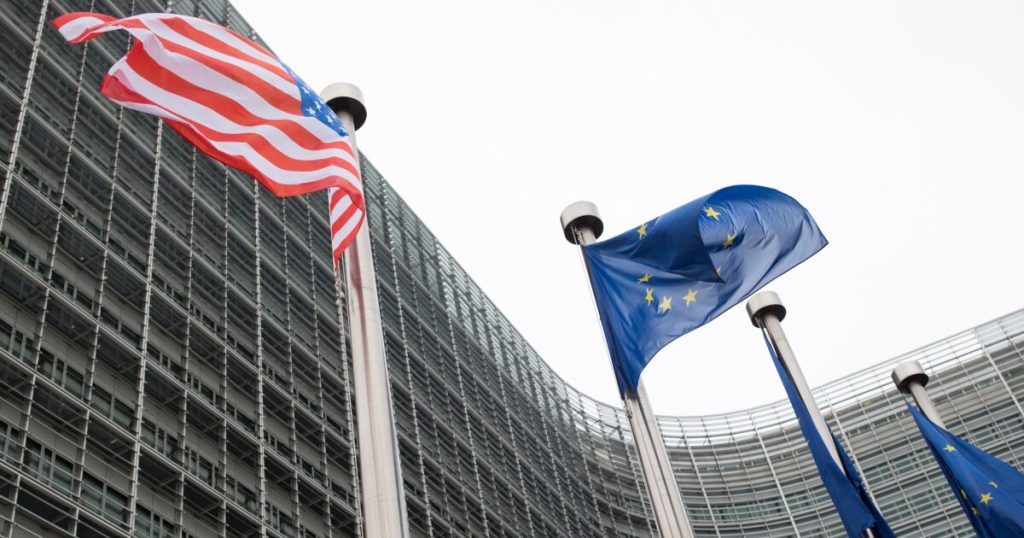Jasper Juinen/Bloomberg
Bankers and regulators expect the European Union to further delay stricter capital standards for lenders’ trading businesses over uncertainty related to whether the U.S. will implement the rules.
Industry representatives such as the European Banking Federation are lobbying the European Commission to push back the rules until the beginning of 2027, and received initial signals the authority is open to doing so, according to people familiar with the matter who asked not be identified. Separately, officials from national banking watchdogs in the wider region told Bloomberg that they expect a one-year deferral.
The U.S. election has stoked speculation that the Trump administration could scrap plans to implement an update of stricter capital standards known locally as Basel Endgame. The EU implemented most of its version of those rules at the beginning of this year, while stopping short of stricter capital requirements for trading books because they could put banks at a disadvantage to U.S. and U.K. competitors.
The commission “is now considering which steps to take on this in light of developments in other jurisdictions, including the U.S. and the U.K.,” said Olof Gill, a spokesperson for the commission, which sets regulation for the EU.
The commission has signaled to bankers and lobbyists that any actions will depend on what course the U.S. takes, the people said. The initial talks are complicated by the fact that some smaller banks would stand to benefit from the new framework because their systems for capturing trading risks are less advanced than larger competitors, said the people.
“We expect the European Commission to grant an opt-in allowing banks to choose whether to implement it” next year or later, said a spokesperson for the EBF. “Maintaining a level global playing field is essential for Europe’s competitiveness.”
The U.K. has moved more swiftly, by pushing its application of the wider Basel standards by one year to the start of 2027. The Bank of England cited “the current uncertainty around the timing” of the standards in the US and said the decision also reflects “competitiveness and growth considerations.”
France has been urging a delay in the Basel rules for months, with President Emmanuel Macron saying in November the EU should “synchronize” its financial regulation with the U.S. A further one-year deferral is necessary to ensure a “level playing field” with the U.K. and the U.S., the French government wrote in broader document that calls for a major reworking of the European regulatory framework.
Other jurisdictions opted not to wait. Switzerland implemented the entire package at the start of the year.

